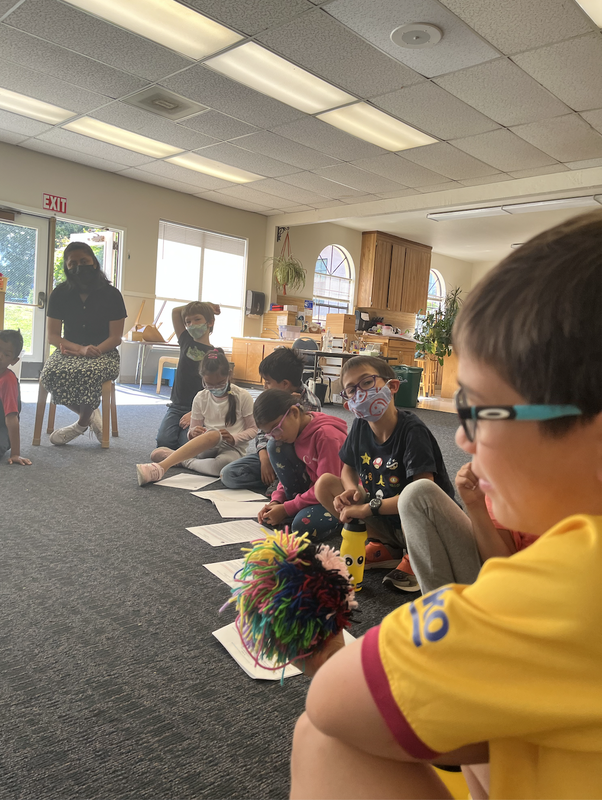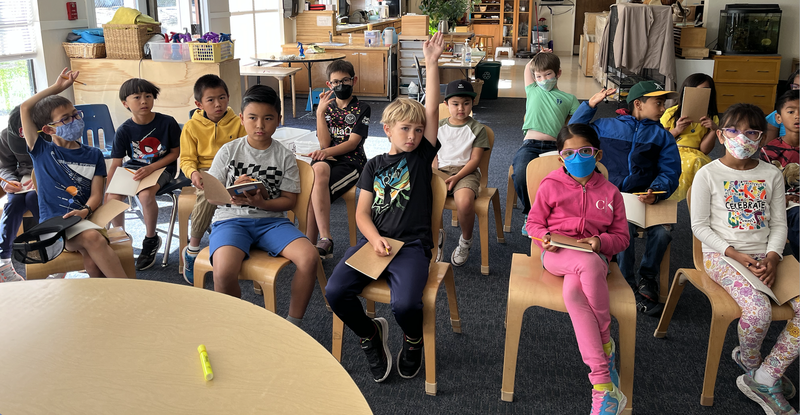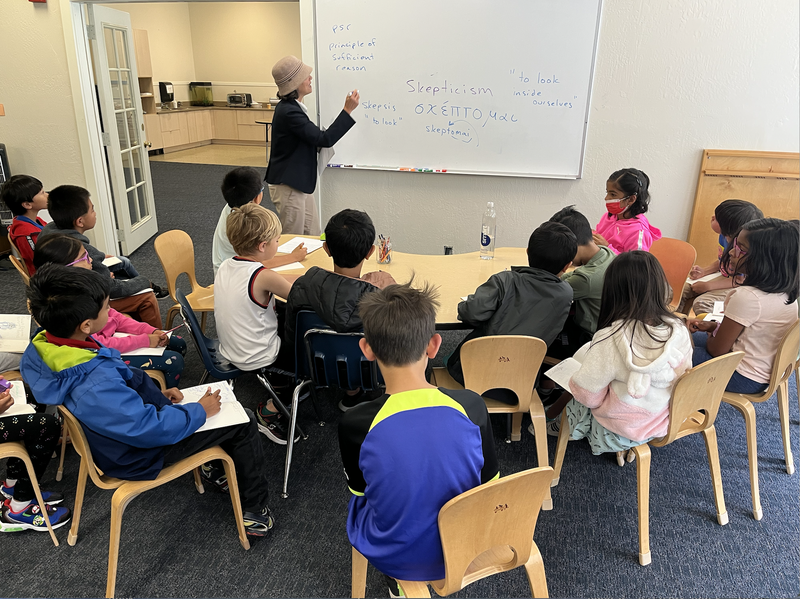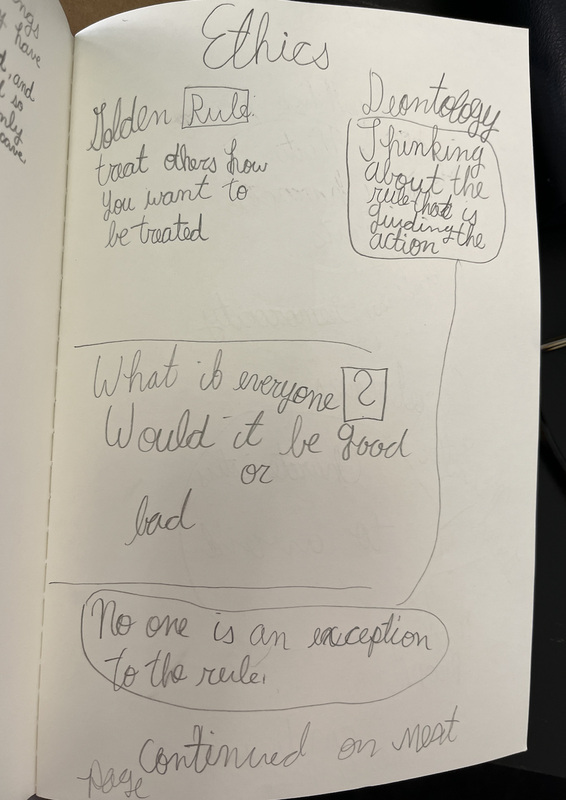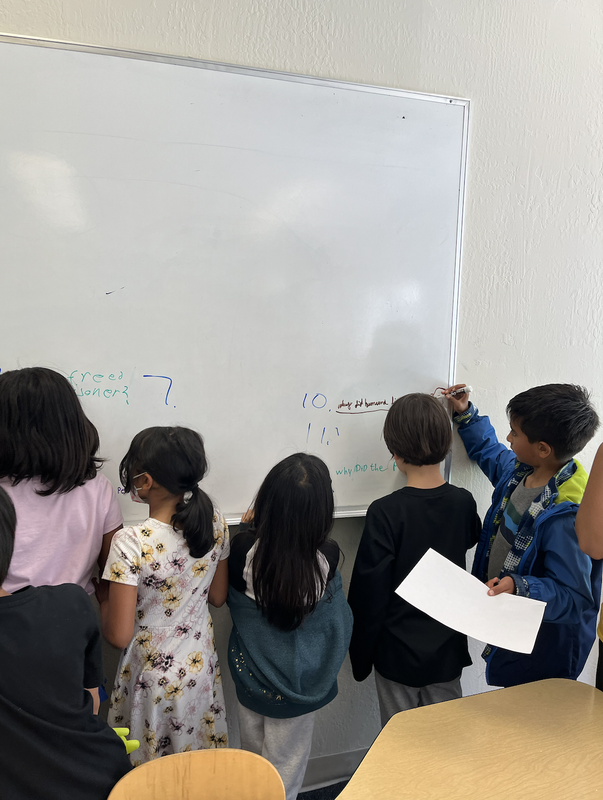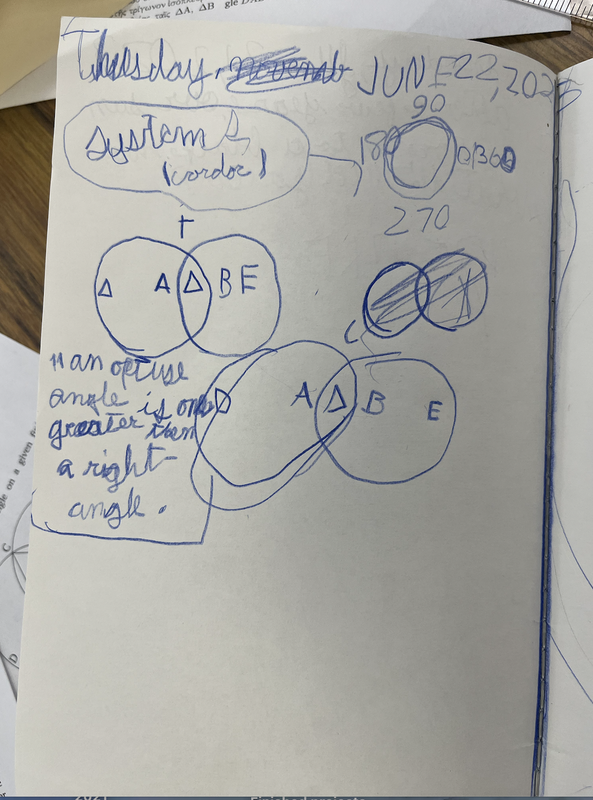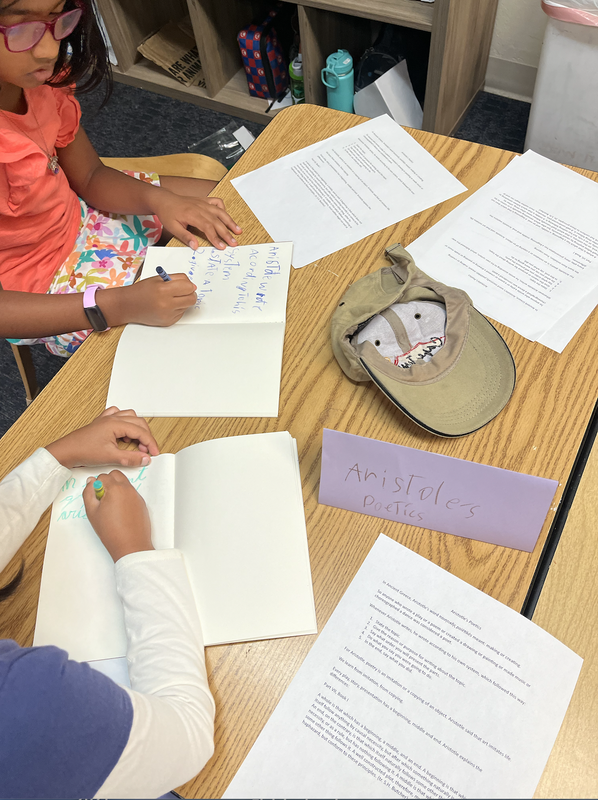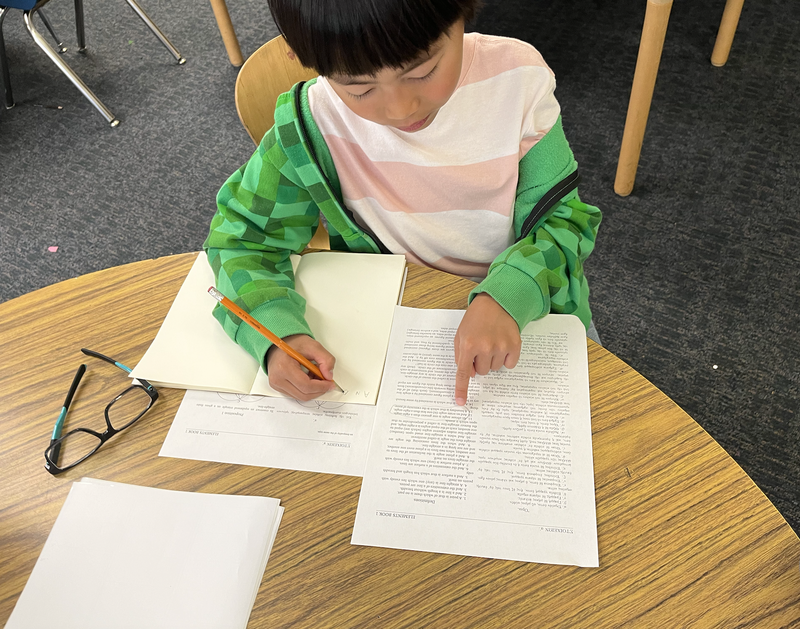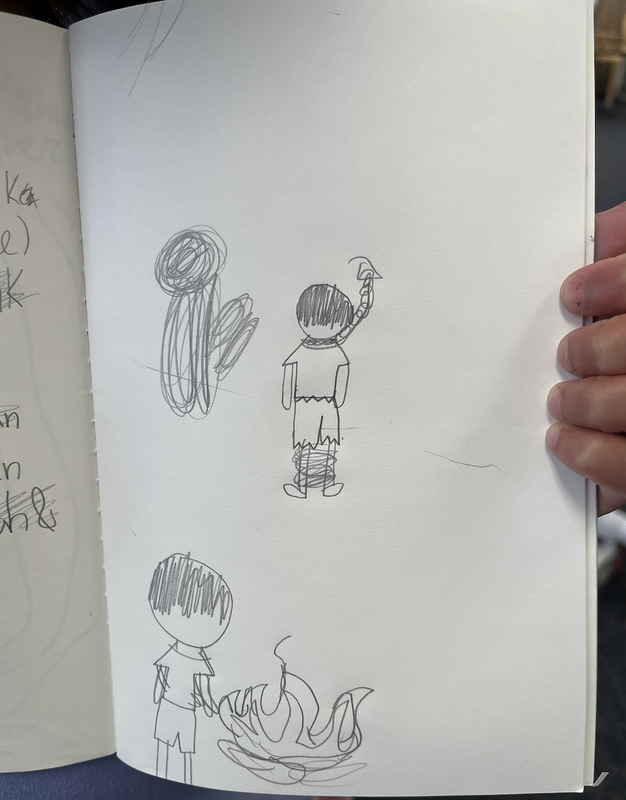Children can learn philosophy!
Philosophy professor Sophia Stone teaches philosophy to children at a summer camp for elementary school students in California
Fremont— 7/3/23 — Can children learn philosophy and how to be philosophical? The answer is a resounding ‘yes’. This summer, children from second to sixth grade (ages 7 to 11) learned about four big ideas in philosophy—Intellectual Humility, Intellectual Rigor, Skepticism and Ethics—at a new summer program. Intellectual Humility is the acknowledgement that one’s thinking and reasoning are limited. Children learned different ways in how thinking can go wrong. Intellectual Rigor trains thinking according to principled reasoning. Children learned systems of thinking from Aristotle, Euclid, Leibniz, Émilie Du Châtelet and opening principles in chess. Skepticism is recognizing when we need to withhold judgment and ask more questions. Children practiced skepticism in skits in which they had to detect deception. Ethics is the study of how and why we should care for ourselves, care for each other and care for the Earth. Children were introduced to four ethical theories: Virtue Ethics, Deontology, Consequentialism, and Ecocentrism. They learned examples of applications from each theory and used these examples as stimuli for discussion.
The two-week summer camp is a pilot program, a partnership between Wisdom’s Edge Foundation and Montessori School of Fremont in Northern California. The school takes an approach to education that teaches toddlers and elementary school age children how to be independent in their learning and self-sufficient in their caring of themselves. Wisdom’s Edge Foundation is a non-profit organization that provides philosophy classes for communities that don’t normally have access to university courses. In the summer of 2022, MSF sponsored the training of Dr. Sophia Stone, an associate professor in philosophy at Lynn University, in a distinctive “philosophy for children” pedagogy at a program in Hawai’i (“p4cHI”) that is wholly and profoundly student centered. This summer, Dr. Stone combined the techniques she learned at the Hawai’i program with what she has learned in more than a decade of teaching philosophy to university undergraduates. The results are simply mind-blowing.
Positive Parent Reviews
“I feel that Dr. Sophia’s teachings have kindled an opportunity of a new mindset in my daughter… She shared good concepts of how to look at a problem and what questions to ask. Kids will need such tools as they grow,” wrote Rupan Ramnik, mother of a camper in second grade. She added, “Dr. Stone has a unique style of teaching and the values and concepts that she is sharing with the students l feel are missing in the modern school systems and are highly needed. I hope and wish that she will continue to teach and share her knowledge with kids in coming years too.”
“Really appreciate your encouraging [my son] to think outside the box and providing philosophical aspects [in thinking],” said parent of a camper in fourth grade. “The only thing we don’t like about the camp is that the parents cannot take it,” said parent of second grader.
Philosophy for Children Curriculum
With this pilot program, Dr. Stone is also collaborating with elementary school teachers in Japan and Hawai’i in creating materials for teaching philosophy for children. These materials will be used in future Wisdom’s Edge programming and will be shared with teachers collaborating with the Wisdom’s Edge Foundation.
With her formal training in philosophy and experience teaching around the world, and with input from seasoned elementary school teachers who also have undergone p4cHI training, Dr. Stone provides narratives and activities, based on select translations of classic philosophical texts, so that the children can apply philosophy to their experiences. These provide the stimuli for inquiry-based learning. Children learn Dr. J’s ‘Good Thinker’s Toolkit’ and how to apply its tools (such as recognizing assumptions, making inferences, questioning the truth of a claim, etc.) in their questions and answers.
In this pilot summer camp, Dr. Stone witnessed a nine-year-old girl recognize when her group was making unwarranted assumptions since the question they were considering was really a “Google question” that required research and fact checking. Dr. Stone also witnessed a seven-year-old read a passage from Aristotle with little problem and a ten-year-old girl copying a sentence about time that she thought was interesting from an essay written by Émilie Du Châtelet. After Dr. Stone taught the campers about the fallacy of “question begging,” they would then identify it in ordinary discourse, “you’re begging the question,” they would say.
Dr. Sophia Stone will give an online presentation of her work for Wisdom’s Edge on September 8th, 2023, 2 to 3 pm EDT, hosted by University of Central Florida. Register for that talk here. If you’d like to invite Dr. Stone to lecture or give a brief lesson to your organization in philosophy for children, please email her at [email protected].
###
For more information, press only:
Dr. Sophia Stone
510-366-3996
[email protected]
For more information on the Montessori School of Fremont:
https://www.montessori-fremont.com/
For more information on the p4cHI program in Hawai'i:
https://p4chawaii.org/
For more information on Wisdom’s Edge Foundation:
https://www.wisdoms-edgefoundation.org/
